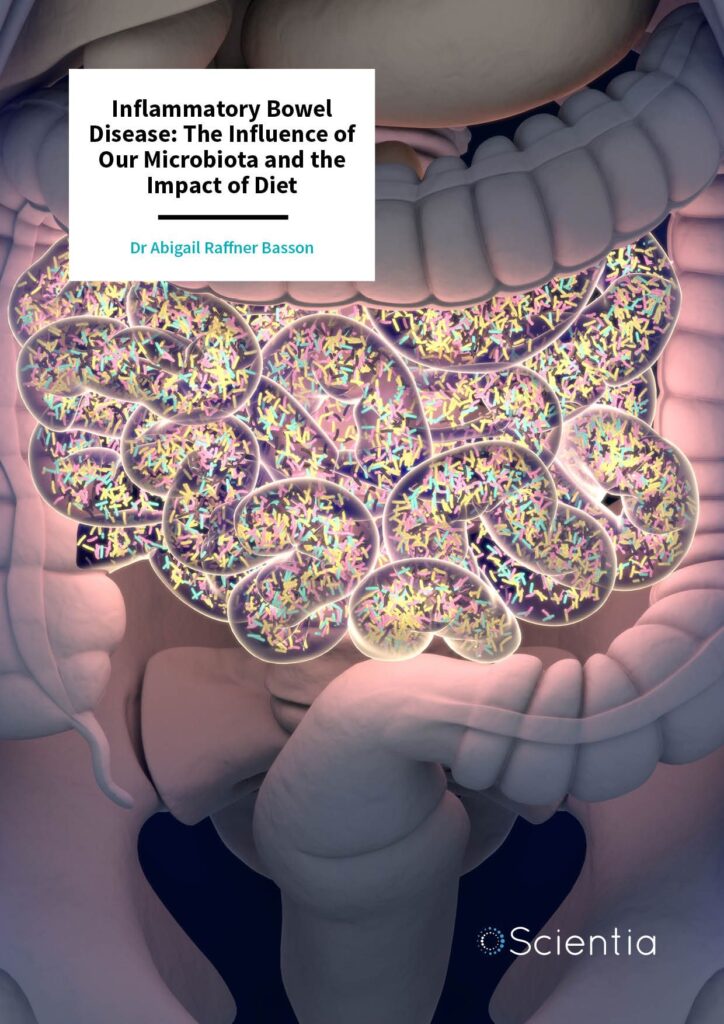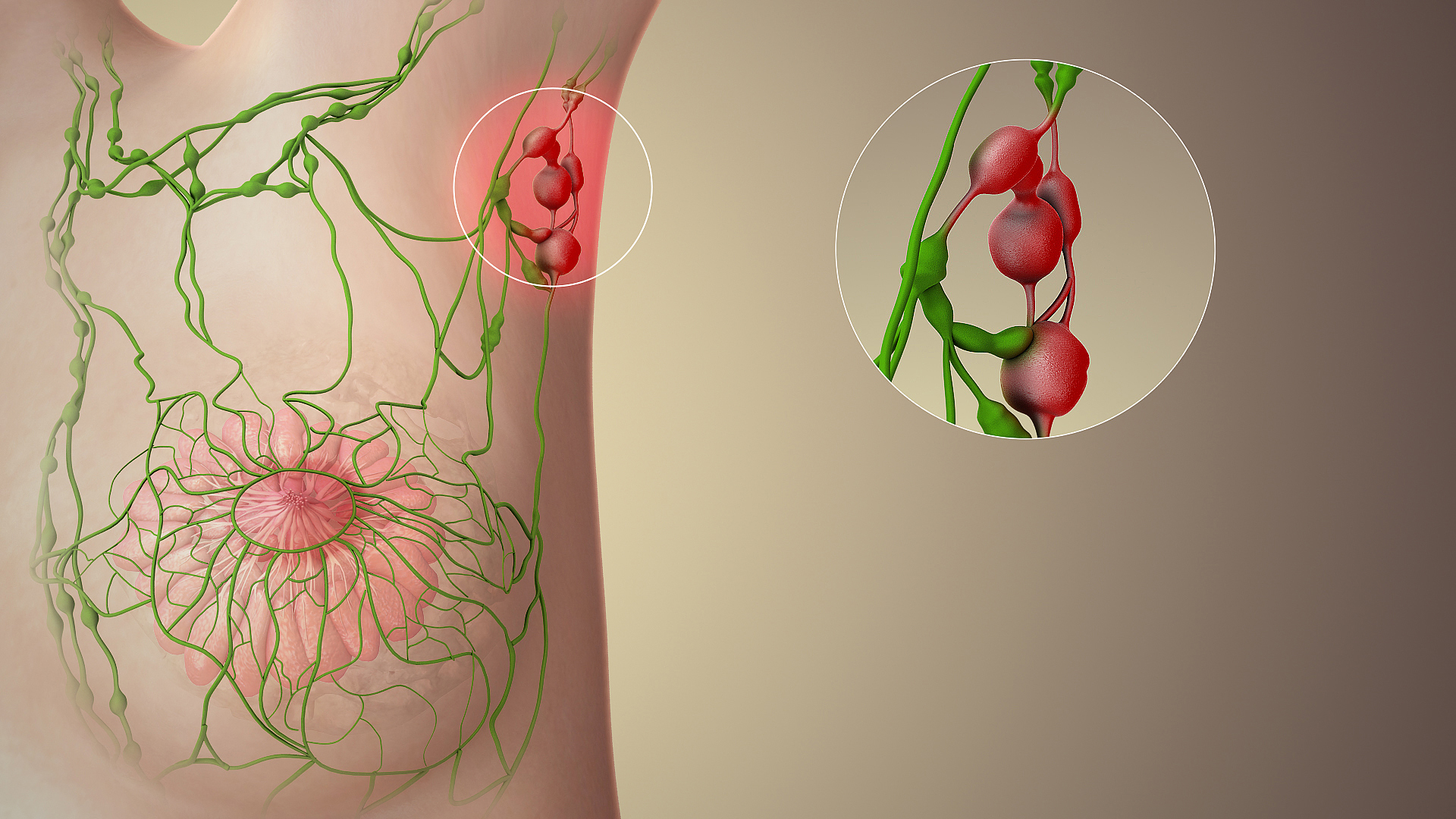
For every woman, understanding her body and recognizing its subtle signals is a profound act of self-care. It’s an empowering step toward safeguarding health, especially when it comes to a challenge as significant as cancer. While a cancer diagnosis may seem distant, particularly for younger women, the reality is that each year, hundreds of thousands of women in the United States are diagnosed with breast or gynecologic cancers. Though more common after menopause, these conditions can, and do, affect women at any age. Recognizing the signs early can dramatically shift the odds in your favor, making treatment more effective and outcomes more positive.
The challenge lies in the often-vague nature of cancer symptoms, which can easily be mistaken for less serious, benign conditions. As Therese Bevers, M.D., medical director of the Lyda Hill Cancer Prevention Center, aptly puts it, “Sometimes, the signs are very subtle.” This makes proactive awareness not just beneficial, but crucial. With only breast and cervical cancers detectable through routine screening, it becomes paramount to recognize potential cancer symptoms and discuss them swiftly with a gynecologist or primary care doctor. This approach is fundamental to catching cancer in its nascent, most treatable stages.
This in-depth guide is designed to empower you with knowledge, shining a light on 14 potential cancer symptoms that, while often overlooked, should never be ignored. We aim to translate complex medical information into clear, actionable insights, encouraging a proactive stance on health. By knowing what to watch for, you can tell your doctor about concerns right away, becoming your own best advocate in the journey toward early diagnosis and sustained well-being.

1. **Abnormal Vaginal Bleeding**Abnormal vaginal bleeding stands out as a critical symptom that warrants immediate attention, especially given its strong correlation with certain gynecologic cancers. More than 90% of women diagnosed with post-menopausal endometrial cancer, which develops in the lining of the uterus, experience irregular vaginal bleeding. This statistic alone underscores the importance of not dismissing any bleeding after menopause, including mere spotting, as it’s never considered normal in this life stage.
Beyond menopause, abnormal bleeding is also one of the most common symptoms of cervical cancer. For women who are pre-menopausal, this symptom can manifest as bleeding between periods or experiencing bleeding during or after ual intercourse. These occurrences are deviations from a typical menstrual cycle and should prompt a discussion with a healthcare provider. While such bleeding can have benign causes, its potential link to cancer makes professional evaluation indispensable.
Dr. Premal H. Thaker, the chief of gynecologic oncology at the WashU Medicine Siteman Cancer Center, emphasizes that symptoms like irregular bleeding between menstrual cycles or bleeding after could indeed warrant a conversation with your doctor. They can conduct a pelvic exam and run tests to rule out common benign conditions such as vaginal dryness, an STI, or fibroids. However, if these benign reasons are ruled out, a Pap test is typically the next step to screen for cervical cancer, highlighting the systematic approach to diagnosis.
Therefore, any instance of unexpected vaginal bleeding—whether you are pre-menopausal and notice bleeding between periods or after , or if you are post-menopausal and experience any bleeding at all—should be a signal to consult your doctor without delay. Taking this symptom seriously can pave the way for early detection and significantly improve treatment outcomes, offering peace of mind or timely intervention.
Read more about: Beyond the Veil: 7 Crucial Menstruation Facts Often Misunderstood – A Deep Dive into What Period Dramas (and Society) Miss

2. **Unusual Vaginal Discharge**Beyond just bleeding, the characteristics of vaginal discharge can also serve as a subtle, yet significant, indicator of potential health concerns. While often a sign of infection, certain types of vaginal discharge can be a warning sign for gynecologic cancers such as cervical, vaginal, or endometrial cancer. Specifically, “bloody, dark or smelly vaginal discharge” is mentioned as a potential red flag in the context information, urging women to be vigilant.
Oncologists further caution against ignoring vaginal discharge that is dark in color and extremely smelly, linking it specifically to the possibility of ovarian cancer. This nuance is crucial, as many women might initially attribute such changes to common infections or hormonal shifts, potentially delaying a more thorough investigation. The distinction between typical discharge and discharge that is unusual in color, consistency, or odor is vital for self-awareness.
Dr. Thaker points out that unusual vaginal discharge that has a distinct odor is one of the “below the belt” symptoms that could warrant a conversation with your doctor. It’s important to remember that while the cause is often benign, like an STI, professional evaluation is the only way to confirm this. Ruling out benign conditions allows doctors to proceed with further tests, like a Pap test if cervical cancer is suspected, ensuring all potential serious causes are investigated.
Therefore, it is paramount for women to pay close attention to any sustained or unusual changes in their vaginal discharge. Never dismiss discharge that is consistently dark, bloody, or has an abnormally strong or unpleasant odor. Promptly discussing these changes with a healthcare provider ensures that an accurate diagnosis can be made, allowing for either simple treatment of an infection or early detection of a more serious underlying condition.
Read more about: Beyond the Veil: 7 Crucial Menstruation Facts Often Misunderstood – A Deep Dive into What Period Dramas (and Society) Miss

3. **Changes in Breast Skin Texture or Appearance**While the search for lumps is a well-known aspect of breast health, equally critical, yet often overlooked, are changes in the skin texture or overall appearance of the breast. These visual cues can be subtle but indicative of serious underlying issues, including a more aggressive form of breast cancer known as inflammatory breast cancer (IBC). Symptoms such as redness, swelling, warmth, and/or dimpled skin on your breasts, often described as “resembling the appearance of an orange peel,” are characteristic signs of IBC, according to Thomas Buchholz, MD, the medical director of Scripps Cancer Center.
Inflammatory breast cancer is particularly challenging because its presentation can mimic a breast infection, leading to potential misdiagnosis or delayed recognition. However, other changes in appearance or skin texture, such as dimpling, skin discoloration, or swelling, are also listed as signs to be on the lookout for. These are not merely cosmetic concerns; they are physical manifestations of internal changes that demand professional medical evaluation. It highlights the fact that cancer doesn’t always present as a distinct lump but can affect the entire breast region’s superficial characteristics.
Marla Lipsyc-Sharf, MD, a breast medical oncologist at UCLA Health, acknowledges that while redness and color changes on the breasts are more often caused by common issues like fungal infections, especially in warm, sweaty conditions, persistence is key. If the area and color change persist for more than a week, and a fungal cause has been ruled out, your doctor would likely recommend imaging for further evaluation. This expert advice underscores the importance of a watchful approach and the necessity of seeking medical input if symptoms don’t resolve quickly or respond to initial benign treatments.
Paying close attention to your breasts goes beyond monthly self-exams for lumps; it includes a holistic awareness of their overall appearance and skin health. Any unusual changes in texture, color, swelling, or the appearance of dimpling that persists or worsens should be brought to your doctor’s attention promptly. Early identification of these subtle signs, particularly for aggressive forms like IBC, can be life-saving and significantly improve the effectiveness of treatment.
Read more about: Ashley Graham: How the Queen of Curves Continues to Redefine Beauty and Empower Millions at 37

4. **A New Lump That Doesn’t Go Away (Breast or Armpit)**Despite widespread awareness campaigns, the discovery of a new lump in the breast or armpit remains a critical, yet sometimes initially dismissed, symptom that women should never ignore. Most palpable breast cancers are, in fact, detected by women themselves during routine daily activities such as bathing, shaving, or even scratching. This highlights the indispensable role of breast self-awareness in early detection, urging women to be vigilant for any new formations.
While the word “lump” can feel ominous, it’s reassuring to know that “oftentimes, the lumps that we find are benign,” as stated by Dr. Lipsyc-Sharf. However, without a professional medical evaluation, differentiating between a cancerous lump and something less serious is impossible. The context suggests that while cancerous lymph nodes tend to be hard, reactive (benign) lymph nodes are typically soft and tender, offering a subtle clue, but this distinction requires expert assessment.
To manage this common concern effectively, Dr. Lipsyc-Sharf provides actionable advice: if you first notice a lump, make a note in your calendar for two weeks out. If the lump persists after this period, it’s crucial to contact your primary care doctor. This strategy allows for a reasonable waiting period for benign, temporary swellings to resolve naturally, while ensuring that any persistent issue receives timely medical attention. A physical exam will help determine if imaging, such as a mammogram or ultrasound, is necessary.
Ultimately, any new lump in your breast or armpit that does not resolve within a couple of weeks warrants a doctor’s visit. Trusting your instincts and seeking professional guidance can be a vital step. Early detection of a cancerous lump significantly improves outcomes, with survival rates for breast cancer highly dependent on the stage of discovery. Your proactive awareness is a powerful tool in your health defense.

5. **Unexplained Weight Loss**Unexplained weight loss is a pervasive and often subtle symptom that can signal an underlying malignancy across various cancer types, making it a critical sign for all women to monitor. The context unequivocally states, “Talk to your doctor if you suddenly lose more than 10 pounds without changing your diet or exercise habits.” This specific benchmark is crucial because losing a significant amount of weight without conscious effort is usually an indicator that “something is wrong,” as noted by Dr. Siolas.
This symptom isn’t confined to a specific timeframe; whether the weight loss occurs over a few weeks or a six-month period, if it’s unexplained, it constitutes a potential red flag. Therese Bartholomew Bevers, MD, medical director of the Cancer Prevention Center at the University of Texas MD Anderson Cancer Center, emphasizes that “Adults don’t lose weight without trying pretty hard to do so.” This underscores the abnormal nature of unintended weight loss and why it should never be dismissed.
The underlying reason for cancer-related weight loss is often that the tumor is taking up valuable vitamins and nutrients from the rest of the body. This metabolic drain can lead to a noticeable decrease in body mass even without changes in lifestyle. While many benign conditions, such as hyperthyroidism or gluten intolerance leading to malabsorption, can also cause weight loss, the possibility of cancer necessitates a thorough investigation to rule out serious causes.
Therefore, if you observe a persistent and unexplained loss of more than 10 pounds, it is imperative to consult your doctor. This symptom is often one of the first that individuals notice, serving as an early alarm bell. By addressing unexplained weight loss promptly, you ensure that any serious underlying condition, including various cancers like blood cancers, colon, pancreas, or stomach cancers, can be identified and addressed at the earliest possible stage.
Read more about: Understanding Water Damage: The 10 Vehicles That Survive Floods and the Ones That Fail in Light Rain, Causing Costly Electrical Gremlins

6. **Unexplained Weight Gain (especially abdominal)**While unexplained weight loss often raises alarm, its counterpart – unexplained weight gain, particularly in the abdominal area – can be an equally subtle and significant indicator of certain cancers in women. This symptom is often overlooked or attributed to diet, lack of exercise, or hormonal changes, but its persistence, especially when accompanied by discomfort, should prompt medical investigation. Dr. Siolas directly advises, “if you have unexplained weight gain in your abdomen accompanied by discomfort, that’s also a sign that maybe there’s something that needs to be checked out.”
The primary mechanism behind cancer-related abdominal weight gain is often fluid retention, medically known as ascites. This occurs because early-stage tumors, particularly those originating in the abdomen such as ovarian cancer, can attract a lot of fluid and cause bloating. This fluid buildup can create the appearance of weight gain specifically in the abdominal region, making it feel uncomfortable and distended. It’s a physiological response that manifests as a subtle, yet crucial, warning sign.
Ovarian cancer, famously termed the “silent killer,” is particularly associated with such vague symptoms. The context repeatedly highlights abdominal bloating and feeling full quickly as common early signs of ovarian cancer. These symptoms can be insidious, progressing slowly and easily mistaken for digestive issues or simple weight fluctuations. The insidious nature makes it easier to disregard, underscoring why an oncologist would never ignore persistent abdominal weight gain with discomfort.
Therefore, any unexplained increase in abdominal size or weight, especially when accompanied by persistent discomfort or bloating, warrants a visit to your healthcare provider. It’s crucial not to dismiss these changes as merely benign or lifestyle-related. Prompt evaluation can help differentiate between common issues and the more serious implications of abdominal cancers, offering a vital window for early diagnosis and intervention.

7. **Constant or Unexplained Fatigue**Fatigue is an experience common to all, often a natural response to a busy week or insufficient rest. However, when fatigue becomes severe, constant, and remains unalleviated by rest, especially to the point where it interferes with work or leisure activities, it transforms into a symptom that demands serious consideration. This chronic, unexplained tiredness can be a subtle but significant indicator of an underlying health issue, including various cancers.
The complexity of energy regulation in the body means that everyone’s baseline for what constitutes ‘fatigue’ differs. However, oncologists stress that noticeable changes in your energy level or ability to perform daily activities warrant a conversation with your doctor. Cancer-related fatigue often stems from the body’s battle against the disease, which can deplete vital resources, or from the metabolic demands of a growing tumor. For example, blood cancers like leukemia or certain colon or stomach cancers can lead to blood loss, resulting in anemia which manifests as extreme exhaustion.
While chronic fatigue can be linked to numerous benign conditions—such as endocrine disorders, psychiatric issues like depression, or problems with the heart, lungs, or bowel absorption—its persistence should never be ignored. Dr. Lo emphasizes the challenge for primary care physicians in diagnosing fatigue, as it can stem from so many sources, including cancer. The crucial distinction is fatigue that doesn’t improve with rest and significantly impacts daily life.
Therefore, if you find yourself feeling constantly exhausted, more tired than usual without a clear reason, and if this fatigue persists for more than a few weeks, it’s imperative to consult your healthcare provider. Your doctor can help investigate the cause, rule out less serious conditions, and ensure that if cancer is the underlying factor, it can be identified and treated as early as possible. Prioritizing this persistent symptom is a vital step in proactive health management.
Read more about: Listen Up: 14 Critical Signs Your Body Is Quietly Signaling Nutrient Deficiencies

8. **Loss of Appetite or Feeling Full Quickly**Changes in appetite, particularly a noticeable loss of appetite or the sensation of feeling full very quickly after eating only a small amount, can be a vague yet crucial warning sign for certain cancers, most notably ovarian cancer and others unrelated to the reproductive system. These symptoms are often easily dismissed as minor digestive upsets or simply “being full,” but their persistence warrants closer attention from a medical professional.
The insidious nature of ovarian cancer, often dubbed the “silent killer,” is due in part to such subtle initial symptoms. Women might find themselves eating considerably less than usual yet experiencing a persistent feeling of fullness. This can be directly related to tumors, especially those in the abdominal area, causing pressure on the stomach or interfering with normal digestive processes. It’s a physiological signal that something may be disrupting the body’s normal functioning.
Oncologists further highlight that while bowel changes, bloating, and frequent urination are also early signs of ovarian cancer, a decreased appetite coupled with feeling full quickly is another key indicator. These symptoms, when persistent, suggest a need for thorough investigation beyond simple dietary adjustments or temporary discomfort. The context emphasizes that oncologists would not ignore these persistent changes, encouraging individuals to adopt the same vigilant approach.
If you consistently notice that you are eating significantly less than usual, feeling full rapidly, or experiencing a prolonged loss of appetite for two weeks or longer, it is important to talk to your doctor. Such changes are not normal adult eating patterns and could be an indication that something is wrong. Prompt medical evaluation can help determine the cause and, if necessary, facilitate an early diagnosis for effective treatment.
Read more about: Melissa McCarthy’s Epic Transformation: Unpacking Her Weight Loss Journey, Fan Reactions, and The Big 2025 Reveal

9. **Persistent Indigestion or Nausea**While persistent indigestion and nausea are most commonly linked to benign conditions such as stomach ulcers, acid reflux, or even dietary indiscretions, their unwavering presence can, at times, signal a more serious underlying issue, including certain gynecologic cancers. When these uncomfortable symptoms feel more pervasive than usual and resist common remedies, it’s a cue to seek professional medical advice.
The context urges a cautious approach: “Play it safe, and see a doctor if you feel queasy more often than usual.” This advice underscores the principle that while many causes are benign, the potential for a more serious condition means that persistent symptoms should not be casually dismissed. Gynecologic cancers, in particular, can manifest with these seemingly common digestive complaints, making early differentiation challenging but critical.
These symptoms are often part of a broader constellation of vague signs that can accompany various cancers. A tumor, for instance, might interfere with digestion or irritate the abdominal lining, leading to chronic feelings of unease or sickness. The key lies in their persistence – a fleeting bout of indigestion is one thing, but ongoing discomfort that lasts for more than a couple of weeks without improvement necessitates a medical check-up.
Therefore, if you are experiencing persistent indigestion or nausea that feels out of the ordinary, is not explained by your usual diet, or lasts longer than expected, consulting your doctor is a sensible and proactive step. This ensures that any serious causes, including gynecologic cancers, can be identified early, allowing for timely intervention and the best possible outcomes, or simply providing reassurance that it’s a less severe issue.
Read more about: Beyond the Belly Ache: Key Warning Signs of Stomach Cancer You Shouldn’t Ignore

10. **Frequent Urination or Pelvic Pressure**A sudden and persistent need to urinate all the time, or a constant feeling of pressure on the bladder, are symptoms that can understandably cause concern. While the immediate thought might be a urinary tract infection (UTI), especially given its commonality in women, if a doctor has already ruled out a UTI, you are not pregnant, and you haven’t significantly increased your fluid intake, these symptoms could be a critical warning sign of a gynecologic cancer.
The context explicitly lists “Frequent urination or pelvic pressure” as a potential cancer symptom, highlighting that if common causes like UTIs are dismissed, it’s a red flag. These symptoms can arise from a tumor in the pelvic region, such as an ovarian or endometrial cancer, exerting pressure on the bladder. This physical compression can lead to a sensation of needing to urinate frequently, even if the bladder isn’t full, and a constant feeling of heaviness or pressure in the pelvic area.
Ovarian cancer, known for its subtle presentation, often includes changes in urination patterns among its early, vague symptoms. The insidious nature of these signs means they can easily be mistaken for more common, benign conditions. However, the persistence and unexplained nature of these urinary and pelvic pressure changes are what distinguish them as potentially significant indicators. It’s a sign that the anatomical structures in the pelvic region may be under abnormal stress.
If you are experiencing a persistent, unexplained increase in urinary frequency or a constant feeling of pelvic pressure, especially after common causes have been ruled out, it is crucial to consult your doctor. Taking these symptoms seriously allows for a thorough investigation, including a pelvic exam and potentially imaging, to ensure that any underlying gynecologic cancer is detected as early as possible, maximizing the chances for successful treatment.

11. **Changes in Your Bowel Habits**Changes in the regularity, form, or frequency of your bowel movements are often things people prefer to ignore, attributing them to diet, stress, or temporary discomfort. However, significant and persistent shifts in bowel habits, such as new-onset diarrhea or constipation, or alterations in the size and shape of stool, should never be dismissed. These can be critical indicators of underlying health issues, including colorectal and ovarian cancers.
Dr. Despina Siolas emphasizes the rising incidence of colorectal cancer in younger individuals, making it vital to take any changes in bowel habits seriously. The context specifically mentions that these changes could be a sign of a tumor pressing on the colon and distorting your stool. Persistent constipation, diarrhea, or rectal bleeding that lasts for greater than two weeks are potential warning signs that necessitate medical attention.
Beyond colorectal cancer, changes in bowel habits can also be an early sign of ovarian cancer, according to Dr. Thaker. The vagueness of ovarian cancer symptoms means that bowel changes, alongside bloating and feeling full quickly, are often part of its elusive presentation. While many women experience irritable bowel syndrome (IBS) or other related illnesses, the crucial point is that any persistent and unexplained changes warrant a visit to your doctor for a proper diagnosis.
Therefore, if you begin to notice consistent changes in your bowel habits – whether it’s persistent diarrhea or constipation you’ve never experienced before, or distinct changes in the size or shape of your stool – it is important to talk to your doctor. These symptoms should not be overlooked, as early investigation can lead to a timely diagnosis for conditions like colorectal or ovarian cancer, significantly improving treatment outcomes.
Read more about: Transform Your Plate, Transform Your Life: 15 Essential Dietary Shifts for a Healthier You This Month

12. **Enlarged Lymph Nodes**Lymph nodes are tiny, bean-shaped glands found throughout the body, including the neck, armpits, and groin. They play a crucial role in the immune system, filtering harmful substances and housing immune cells. While the most common cause of enlarged lymph nodes is an inflammation, viral, or bacterial infection, persistent swelling—especially those that don’t subside after two weeks—can be a significant red flag for various cancers.
Dr. Lo clarifies that while reactive (benign) lymph nodes typically feel soft and tender, cancerous lymph nodes tend to be hard. This subtle distinction, though requiring expert assessment, underscores the importance of professional evaluation. Swollen lymph nodes can be indicative of a range of malignancies, including lymphoma, which directly affects the lymphatic system, or carcinomas that have spread from other parts of the body.
The presence of enlarged lymph nodes signals that the body is responding to something. In the context of cancer, it could mean that cancer cells have traveled from a primary tumor site to the lymph nodes, where they have begun to grow. The context emphasizes that swollen lymph nodes, particularly those that persist, are symptoms that oncologists would not ignore, urging patients to adopt the same vigilance.
If you discover an enlarged lymph node in your neck, armpit, or groin that persists for more than two weeks, or if it feels unusually hard and fixed, it is imperative to consult your doctor. While often benign, timely medical evaluation is essential to rule out serious conditions, including cancer. Early detection of cancer through this symptom can lead to more effective treatment and improved long-term prognosis.

13. **Nipple Bleeding or Discharge**Changes in the are often overlooked but can be critical indicators of breast cancer. While a new lump is a well-recognized symptom, nipple bleeding or discharge, along with other nipple abnormalities such as retraction or scaling, are equally significant and warrant immediate medical attention. These symptoms, though sometimes benign, should never be dismissed without professional evaluation.
Nipple discharge can occur for several reasons, some benign, such as hormonal changes during pregnancy or breastfeeding, or the presence of a papilloma (a wart-like growth in milk ducts). However, when discharge is bloody, spontaneous, or comes from only one breast, it raises a higher concern for malignancy. Dr. Buchholz notes that nipple bleeding or discharge could rarely be indicative of breast cancer, emphasizing the need for evaluation.
The context from “Changes in your breasts” mentions being on the lookout for “unusual discharge” and “abnormalities of the nipple, such as retraction or scaling.” This highlights that while most changes might be benign, specific nipple changes are more directly linked to internal breast health. Dr. Lipsyc-Sharf reassures that often, these are benign changes, but the caveat is that patients should know that “more often than not, these are benign changes rather than cancerous changes,” implying that professional medical assessment is always necessary.
Therefore, if you experience any nipple bleeding or unusual discharge, regardless of whether you are pregnant or breastfeeding, it is crucial to seek medical care promptly. Your doctor can assess the nature of the discharge, conduct necessary examinations, and recommend imaging or further tests to determine the cause, ensuring that any serious underlying condition like breast cancer is detected and addressed as early as possible.
Early detection of cancer can save lives, and recognizing subtle signs is a crucial part of this. By paying attention to your body and seeking medical advice when something feels off, you can take proactive steps toward better health.
Encourage others to stay informed and vigilant. Share this information to raise awareness and help save lives. Regular check-ups and an awareness of subtle signs can make all the difference.
Stay proactive, stay healthy. Your life could depend on it.



